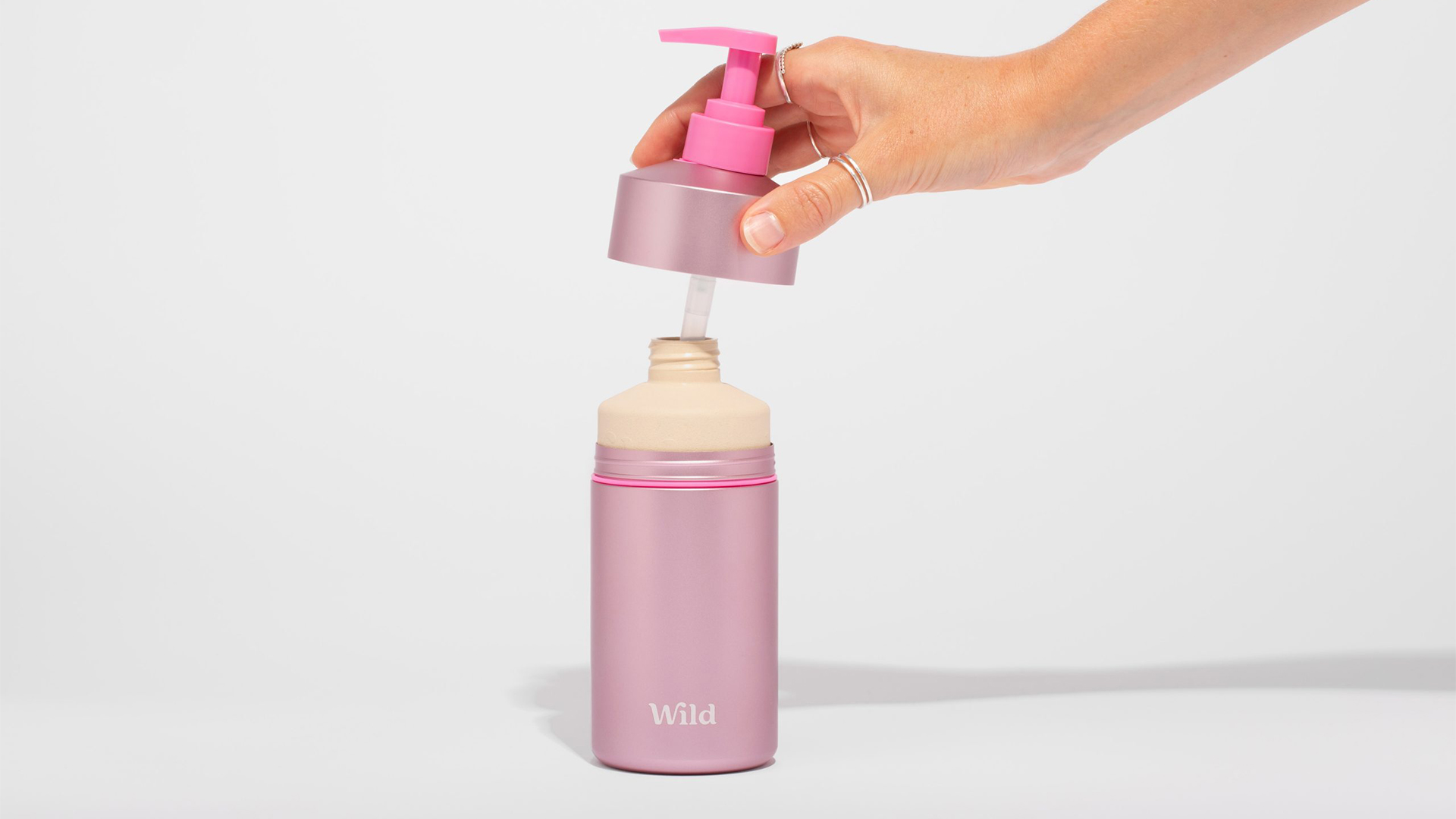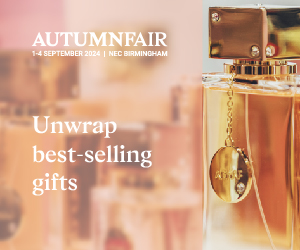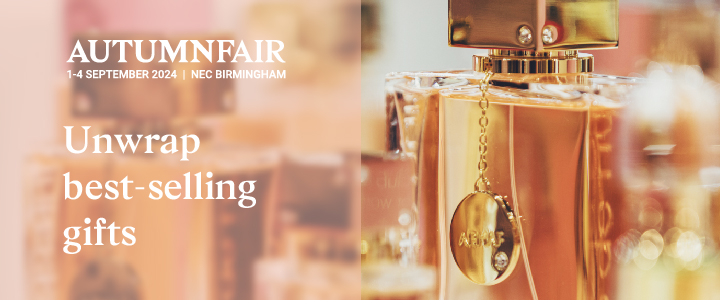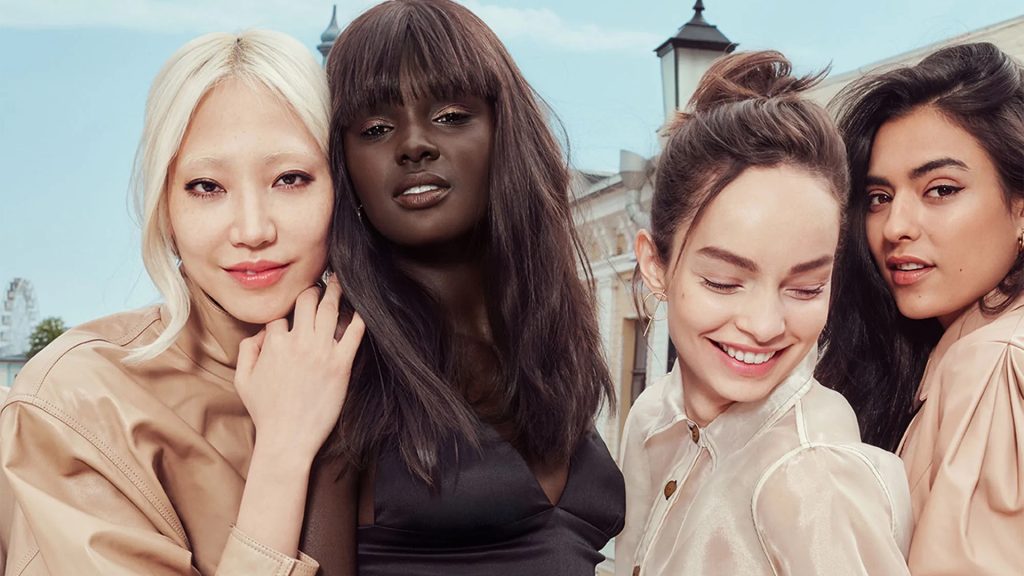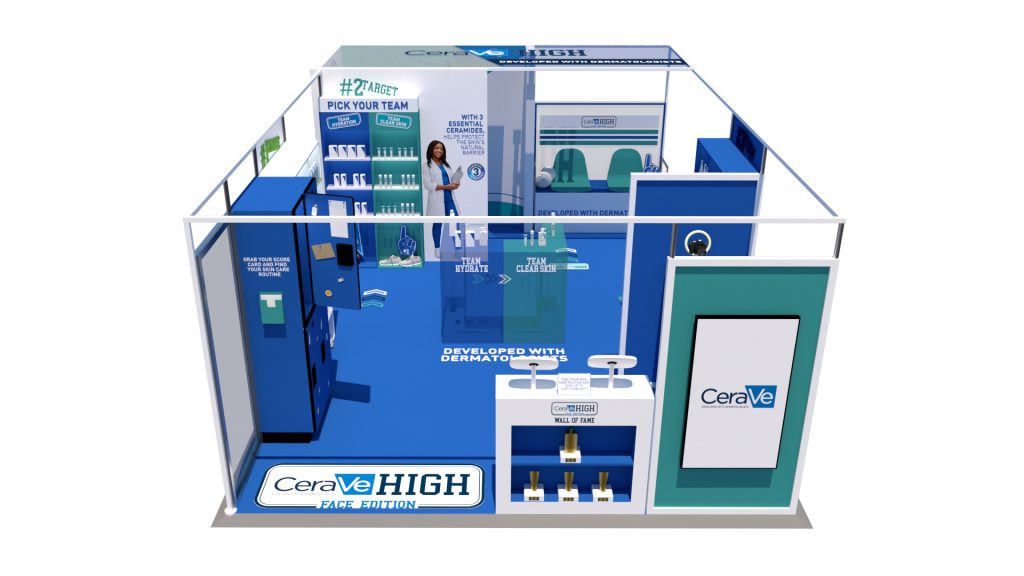Plastic Free July: 5 beauty brands championing sustainable packaging innovation
The global cosmetics market produces 120 billion units of packaging every year, according to recycling company TerraCycle. While this is still one of the biggest sustainability challenges facing the industry, there are a number of beauty businesses with innovative packaging solutions helping to tackle the issue.
To celebrate Plastic Free July, TheIndustry.beauty spotlights five brands championing packaging innovation. Here's what you can learn from them.
Haeckels
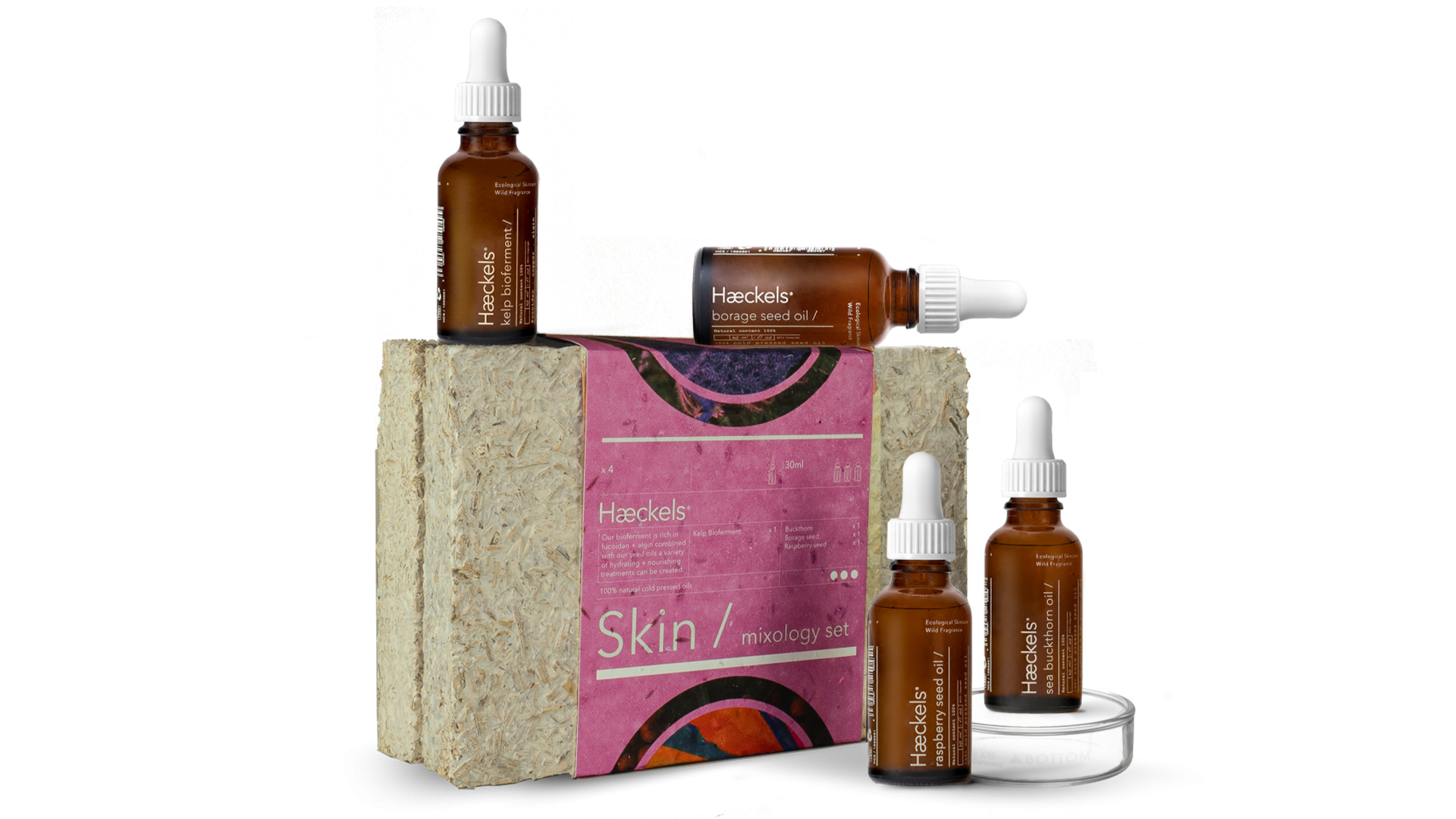
Bio-based products are wholly or partly derived from materials of biological origin, which boost biodiversity by adding nutrients to the soil as they break down. Mycelium, which is created from mushroom roots, is an effective bio-based material used in packaging due to its thermal-insulating and water-resistant properties. According to The Upcycled Beauty Company, on average, it can be grown in just seven days and, once discarded, will typically compost within forty-five days.
One beauty brand known for using Mycelium in its packaging is Haeckels, which says the material can be grown and recycled, readily decomposes and, by adding seaweed, can contribute to soil quality, thus contributing to the natural ecosystem.
"Mycelium is an ideal material to use as a packaging material, as once it has been dried, the final product is lightweight, yet fire and impact resistant," reads a statement on the brand's website. "As it is grown, it means that we are not harming any ecosystem to obtain the material, and as long as we keep cultivating it in the right conditions, it will continue to grow to create new packaging. Also, after being used for its intended purpose, it can be reused, composted or planted in your garden to improve soil quality."
Another packaging innovation used by Haeckels includes an algae bottle seal, which is applied to the British skincare brand's bottles and as it dehydrates, creates a natural seal around the bottle that is both hygienic and removes the need for any plastic.
Elemis
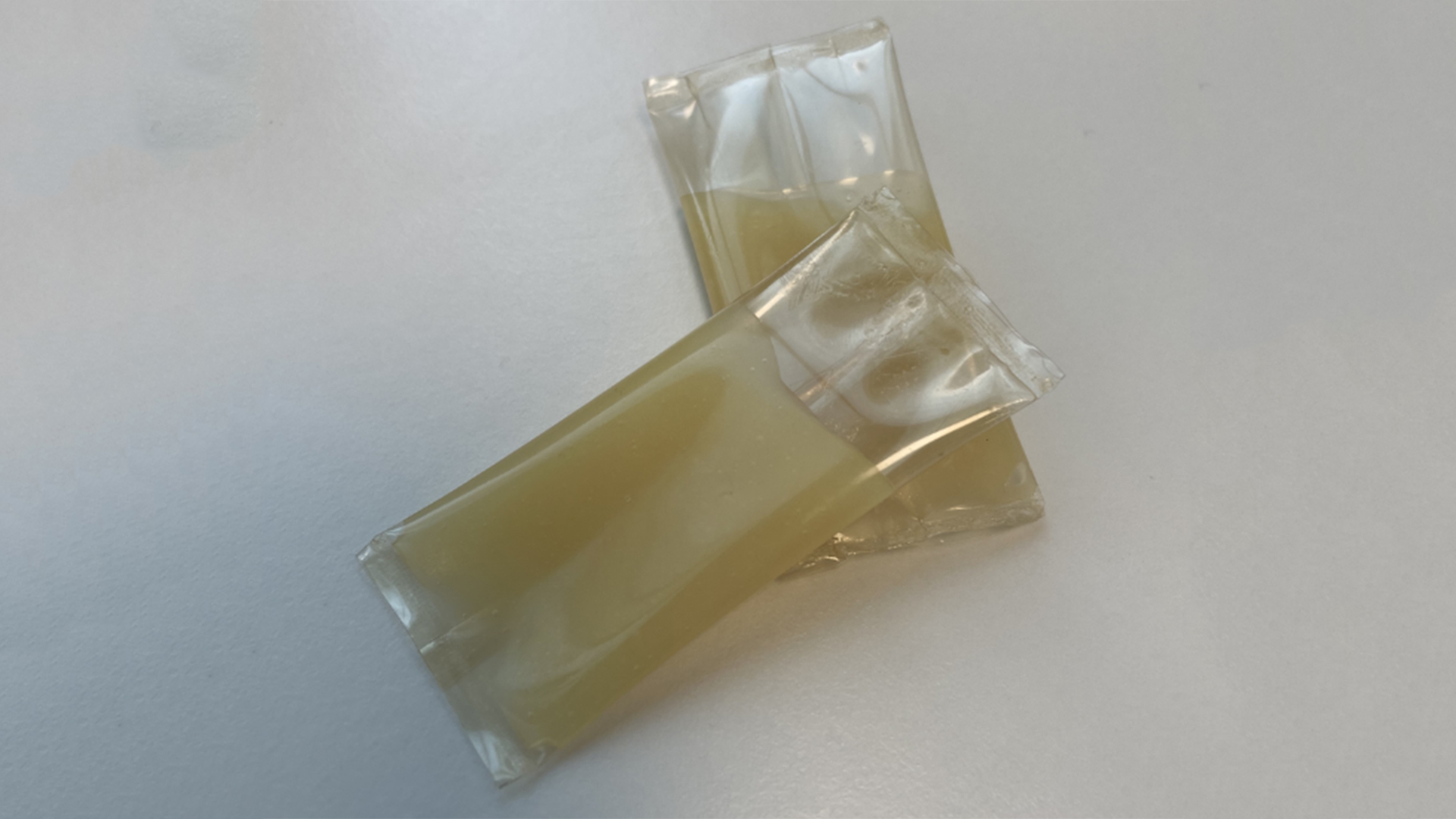
British skincare brand Elemis uses plastic-free biodegradable sampling sachets, developed in partnership with plant-based materials brand Morro - launched last year by Cambridge-based Xampla, a pioneer of materials to replace single-use plastics.
The heat sealable films replace plastic traditionally used in single-use sachets with new materials made from left-over waste from Elemis plant crops and reflect the growing trend for upcycled packaging in the beauty industry as consumers increasingly seek out products with minimal environmental impact.
"What we find so exciting about this project with Morro is how utilising waste from left-over plant material can potentially tackle one of our key packaging dilemmas too," said Oriele Frank, Co-founder and Chief Product & Sustainability Officer at Elemis.
Wild
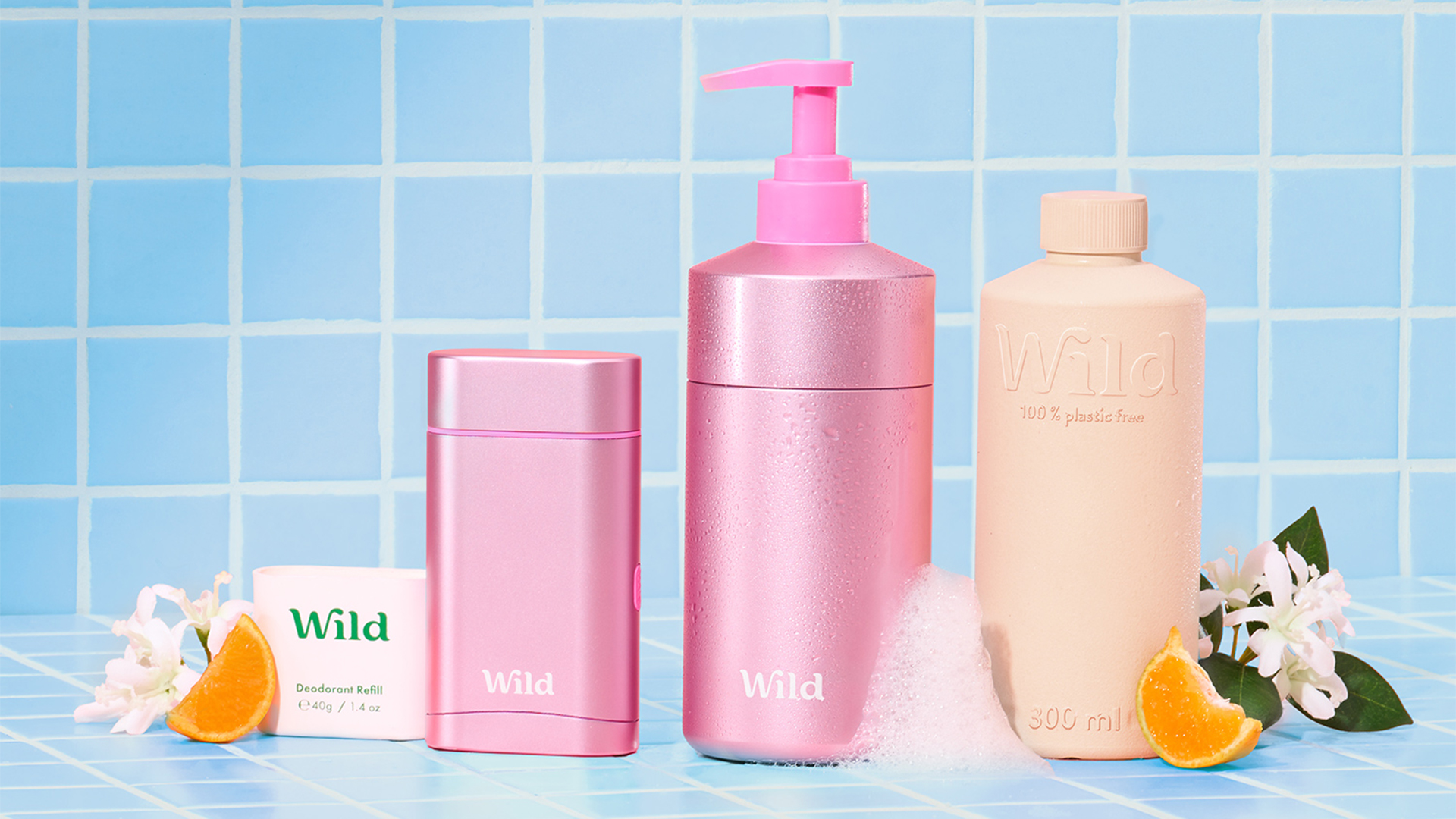
Wild is responsible for the "world's first" 100% plastic-free, compostable body wash bottle. Prior to its launch, plant-based containers often relied on some form of plastic, leading to recycling challenges and environmental concerns. To address this, the brand set out to create a plant-based bottle without any plastic, aiming to eliminate the need for traditional plastic bottles and reduce the environmental impact caused by bathroom waste.
After more than 2.5 years of research and development, the personal care brand launched its "revolutionary" bamboo refill last year. Made from 70% bamboo starch and 30% plant starch from agricultural waste, the compostable refill promises to biodegrade faster than a banana peel; after six months from its date of filling, the packaging will start to break down and return to the earth without causing long-lasting harm to the planet.
The refill can also be stored in Wild's reusable aluminium case, which is designed to "last a lifetime" as the anodised aluminium offers protection against corrosion and water exposure, ensuring it remains in "pristine condition" even in a shower environment.
AKT
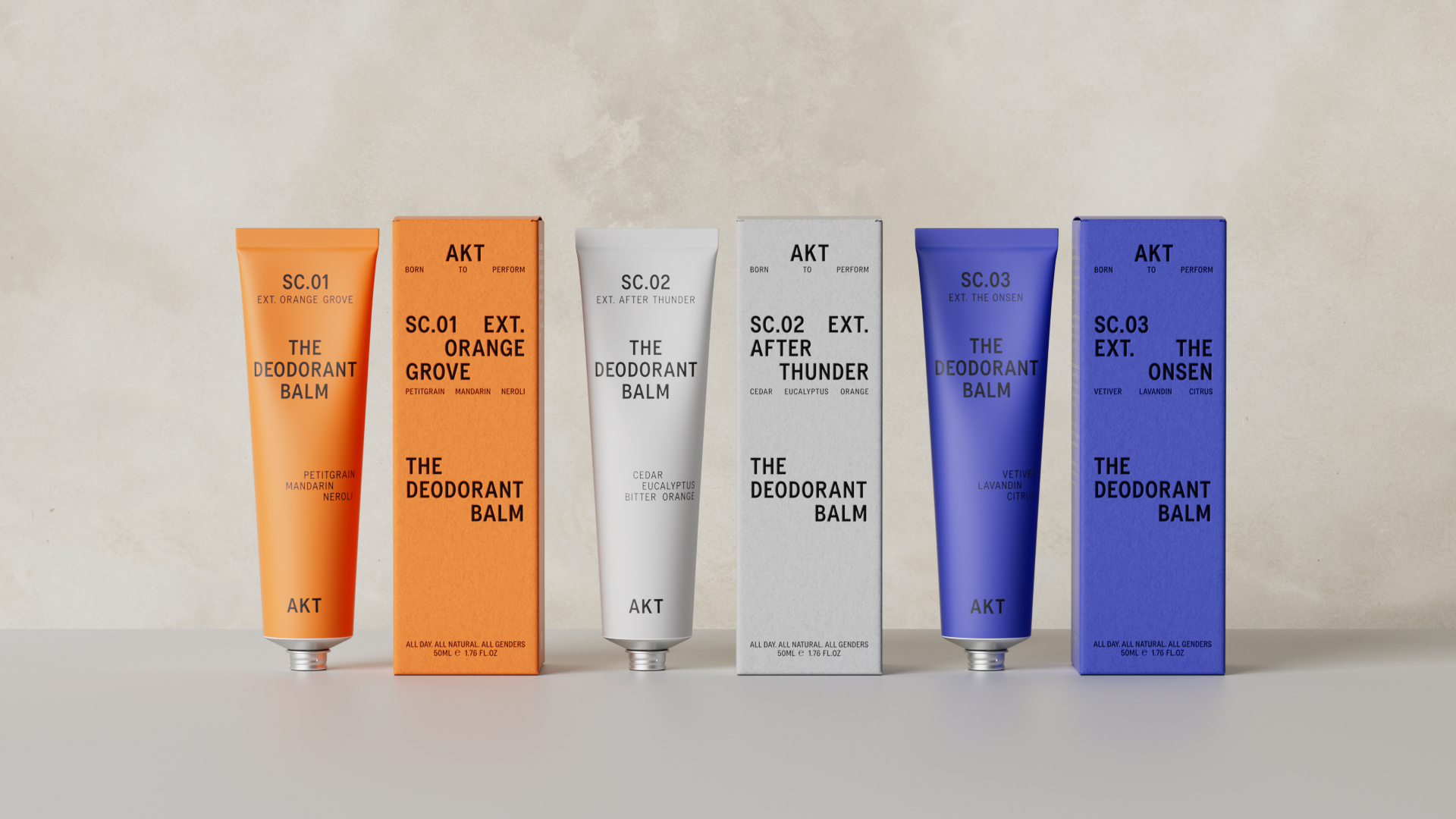
Aluminium is rising in popularity within the beauty industry, with many businesses selecting this material for some or all of their product packaging. This includes AKT London, which uses a bespoke aluminium tube and cap to house its natural deodorant balm. The brand's samples also swap traditional plastic sachets for bespoke miniature aluminium tubes with a "never-before-seen" snap-off nozzle that turns around to create an airtight plug.
Ed Coxon, Co-founder of AKT, said: "We really push the 100% plastic-free element, which resonates well with our customers. The mini tube is also an innovation. It had never been done before and is the only sample size packaging that is 100% plastic-free that we have found on the market suitable for our balms."
Additionally, the outer carton of the brand's deodorant balms is made in the UK from FSC-regulated cardboard with vegetable inks. After use, the tube and carton can be placed into recycling.
Daye
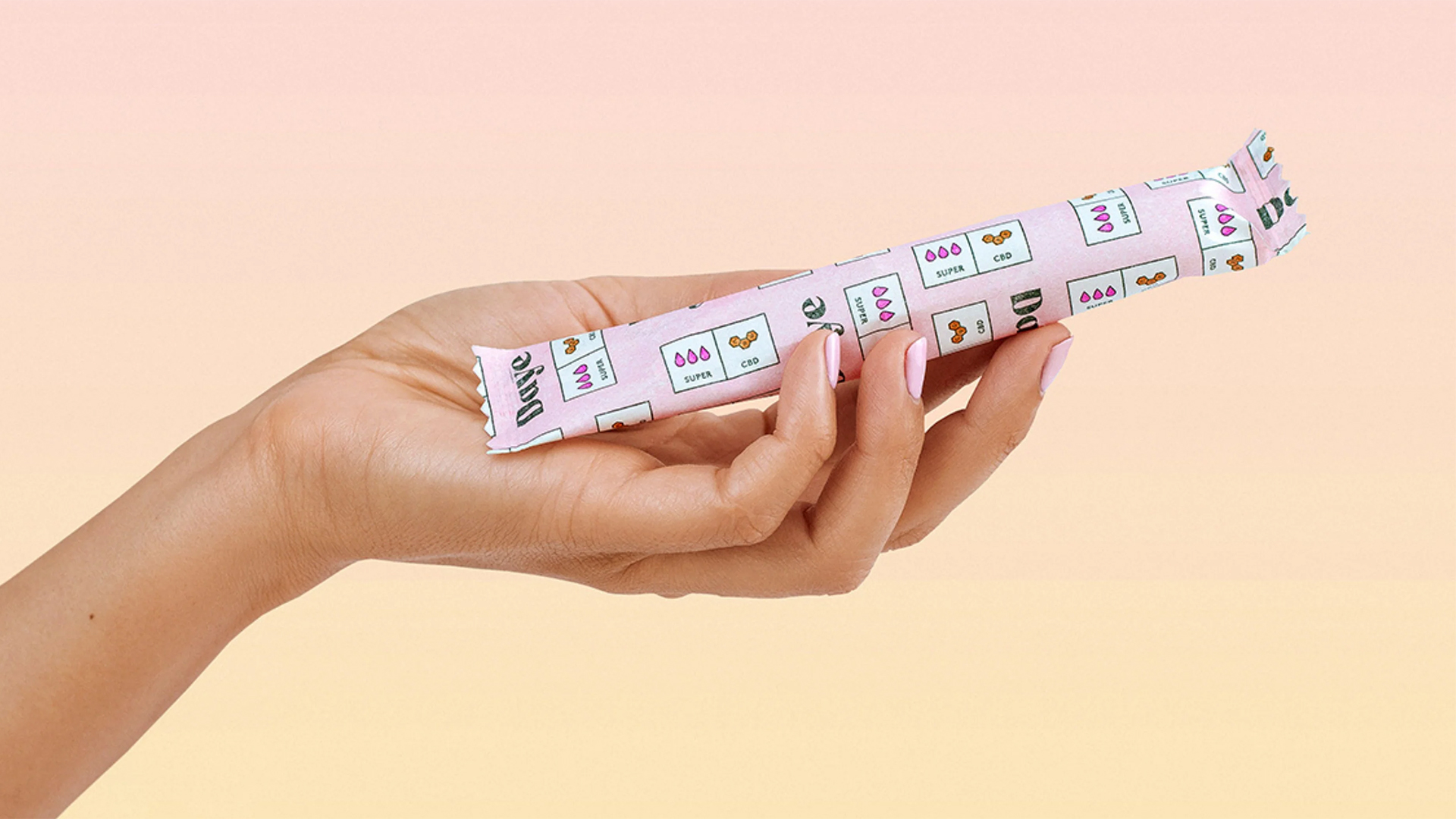
While periods are still widely associated with plastic, chemicals and stigma, the period product industry has embraced some innovation in recent years. From organic cotton tampons with reusable, self-sanitising applicators to stylish yet comfortable period underwear, there's more choice than ever before. At the heart of the sector's innovation is Daye, which creates "fully sustainable" organic tampons.
Since the London-based brand's tampons are made of 100% organic cotton, they’re biodegradable in standard landfill conditions, and they’re also compostable. It also uses bio-based sugarcane applicators. But what about the packaging? Yes, the brand uses compostable refill pouches and recycled paper mailers, but the real innovation comes from its water-soluble paper wrappers. By dissolving almost immediately in water, nothing ends up in landfills, no greenhouse gases are emitted, and no microplastic particles contribute to marine pollution. All that’s left is harmless residue consisting of water and biomass that can safely be poured down the drain.
"At Daye we believe that the onus of sustainability shouldn’t fall on entirely on the consumer, but rather brands and manufacturers," reads a statement on the brand's website. "That’s why we continuously invest in research and development to increase our sustainability standards, and offer products that are good for your body and the environment."




